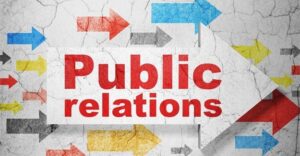Digital marketing is constantly changing. Staying ahead is crucial to stay competitive and reach your target audience. One major advancement in recent years is the integration of artificial intelligence (AI) into marketing strategies. AI tools and techniques can provide valuable insights, streamline operations, and improve marketing performance.
Understanding AI in digital marketing
Before diving into the integration strategies, it’s crucial to grasp the role of AI in digital marketing. AI refers to the simulation of human intelligence processes by machines, particularly computer systems. In the context of marketing, AI utilizes data-driven algorithms and machine learning to analyze vast amounts of data, extract valuable insights, and make informed decisions autonomously. There are a few key areas where AI can transform a company’s digital marketing efforts.
Personalization
AI can analyze user behavior and preferences to deliver highly personalized content and product recommendations, increasing user engagement and conversion rates.
Predictive analytics
AI-powered predictive models can forecast customer behavior, enabling companies to proactively tailor all of their AI marketing strategies to address their needs and preferences.
Chatbots and virtual assistants
AI-driven chatbots provide instant customer support, answer queries, and guide users through the sales funnel, enhancing user experience and efficiency.
Content creation
AI marketing tools can generate content, such as product descriptions, blog posts, and social media updates, saving time and resources while maintaining quality.
Email marketing
AI can optimize email campaigns by analyzing open rates, click-through rates, and user behavior to send targeted and timely emails.
Ad campaign optimization
AI algorithms can adjust advertising bids, targeting, and content in real time to maximize ad performance and ROI.
Enhanced customer experience
AI-driven personalization ensures that users receive content and product recommendations tailored to their preferences, resulting in a more engaging and satisfying experience.
Data-driven insights
AI can analyze vast datasets quickly and accurately, providing valuable insights into customer behavior, market trends, and campaign performance.
Improved efficiency
Tasks that would be time-consuming for humans, such as data analysis and content generation, can be automated with AI, allowing the company’s team to focus on strategic initiatives.
Cost savings
By automating tasks and optimizing campaigns, AI can reduce operational costs and improve the ROI of marketing efforts.
Real-time decision-making
AI can make real-time adjustments to marketing campaigns, ensuring that companies will be able to capitalize on emerging trends and opportunities.
Utilizing AI marketing tools
AI marketing tools like HubSpot, Marketo, and Salesforce Marketing Cloud offer AI-powered automation features for email marketing, lead scoring, and customer journey mapping. Leverage tools like GPT-3-based content generators to create blog posts, product descriptions, and social media content quickly. Implement AI-driven chatbots to provide 24/7 customer support and guide users through the purchasing process.
Leveraging AI for customer data analytics
Use AI to segment the target audience based on behavior, demographics, and preferences, allowing for highly targeted marketing campaigns. Employ predictive models to forecast customer behavior and adjust AI marketing strategies accordingly. AI-driven sentiment analysis tools can gauge public sentiment around the brand and all of its products or services, helping the business tailor all of its messaging.




